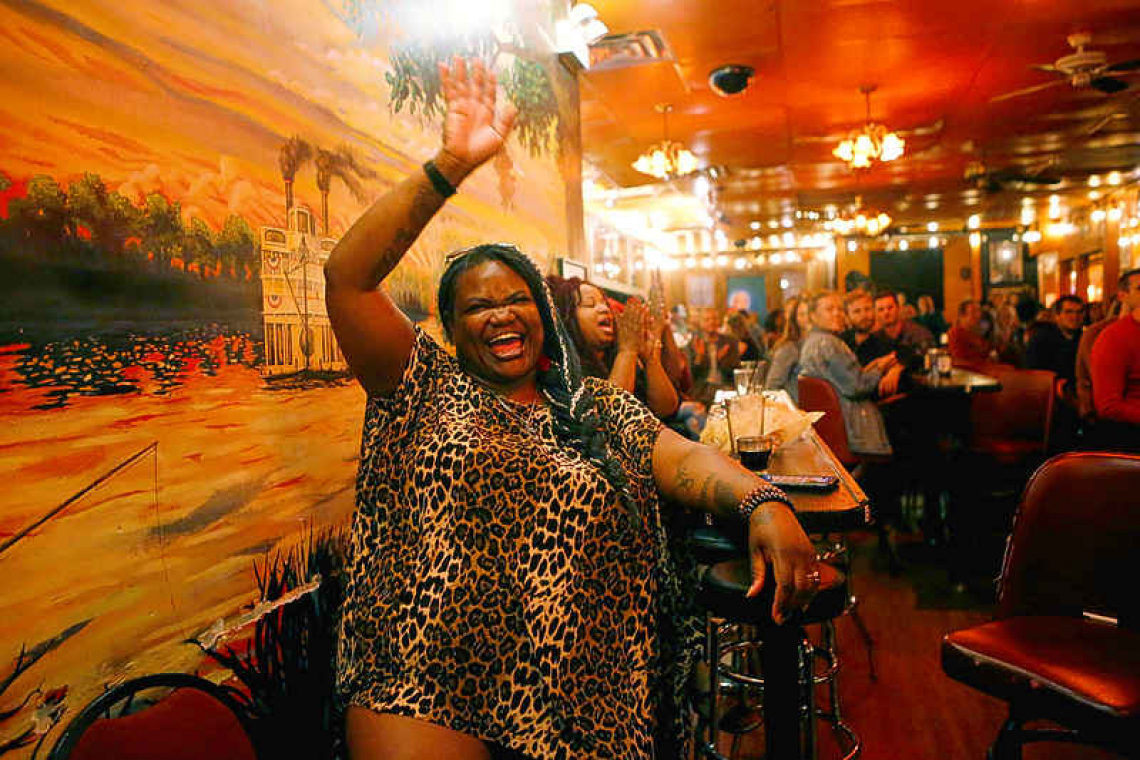CHICAGO--Pamela Pickens swayed her hips as her husband Tom led her in an impromptu dance to the strumming of guitarist Studebaker John at Chicago's famed blues bar, Kingston Mines.
The couple, wearing fedora hats and wide smiles, had driven five hours from their home in southeast Indiana to visit their favourite blues club, which had recently reopened for live performances after a year of shutdown due to COVID-19.
"It's so great to be back," said Pickens, 66, taking a drag from a cigarette outside the venue on a dancing break. "It makes me feel alive."
Inside the bar in the city's Lincoln Park neighborhood, a diverse crowd filled long tables, where they threw back cold beer and baskets of fried food while bopping along to the music.
At concert venues across the United States, from Denver to Washington, D.C., similar scenes have played out in recent weeks as cities lift COVID-19 restrictions and newly vaccinated music lovers return to their old haunts for the thrill of live music in public company. It is one of the unmistakable sights - and sounds - of American life returning to normal, or closer to it.
Venues large and small are seeing demand soar for performers of all genres, who are scrambling to fine-tune their acts after a year of inaction. "When we started playing again, it was an out-of-body experience," said blues guitarist Joanna Connor, gearing up for her show at Kingston Mines one June evening. "It's reaffirmed that I need to do this for my soul."
In interviews, concert lovers described the invigorating experience of hearing live music in a crowded room once again. It felt like the antithesis of the homebound isolation they endured over the past year, and for many, it felt like an antidote.
In Alexandria, Virginia, a mostly middle-aged, Black crowd of more than 200 people swayed their arms in time with a wailing trombone at the Birchmere Music Hall's tribute to Motown concert. It was the first of many summer concerts that Lynette Shingler and her husband Earl planned to attend, now that they were vaccinated against COVID-19.
"If you are a music fanatic, listening to it on the radio is not the same," said Shingler, a 52-year-old federal employee in a floor-length blue dress. "You’ve really got to be in the atmosphere."
Across the river in Washington, D.C., a younger crowd of thousands has packed the dance floor night after night at Echostage, a nightclub that reopened its doors on June 11. Lit up by neon strobe lights and the glow of thousands of iPhones in outstretched hands, the room shook with bass vibrations as French DJ David Guetta jumped up and down onstage.
Guetta is one of several top electric dance music (EDM) headliners that Echostage has welcomed over the last month. The 3,000-person capacity venue started offering tickets for their summer lineup in May, selling 20,000 tickets in just the first few days, far outpacing their pre-pandemic sales rate, Vice President of Operations Matt Cronin said.
"I attribute it to just an absolute hunger for people to get out and see music again," he added.







